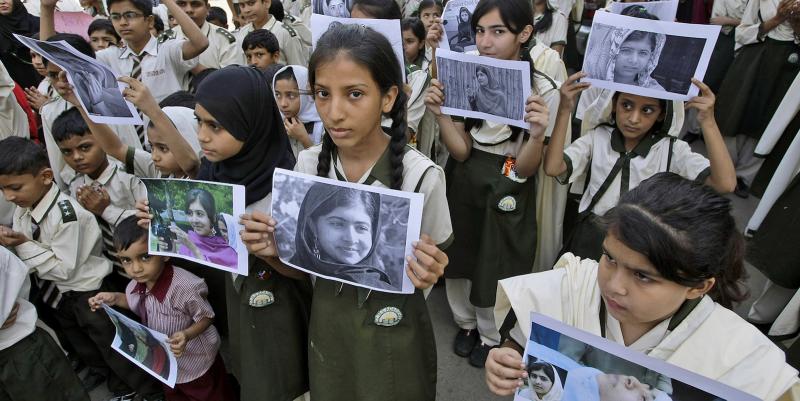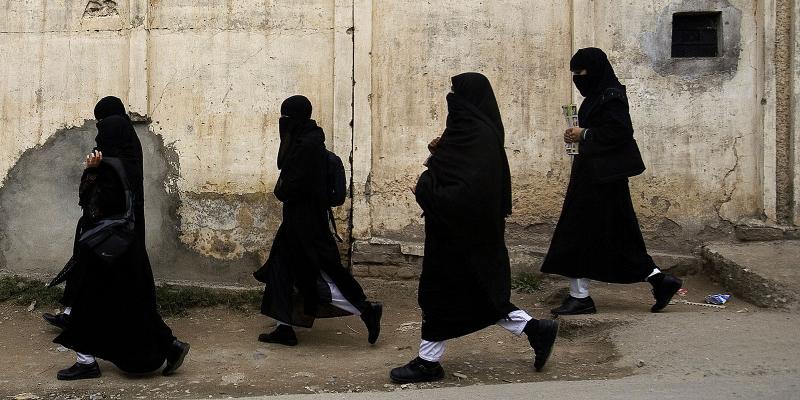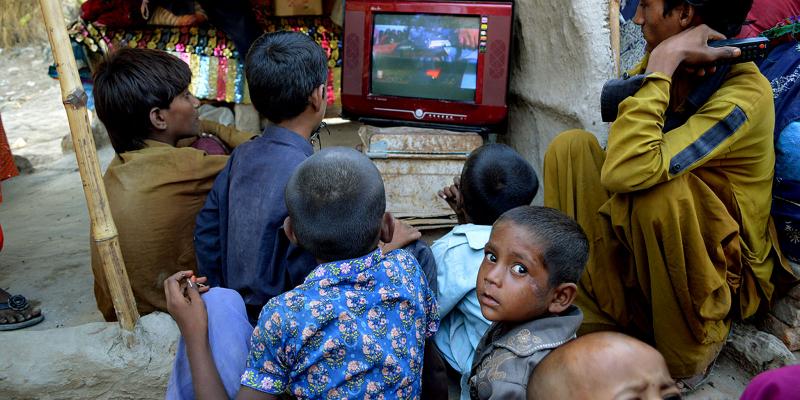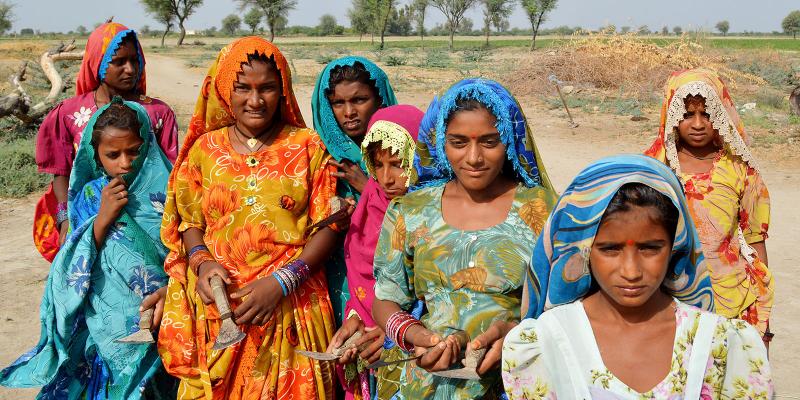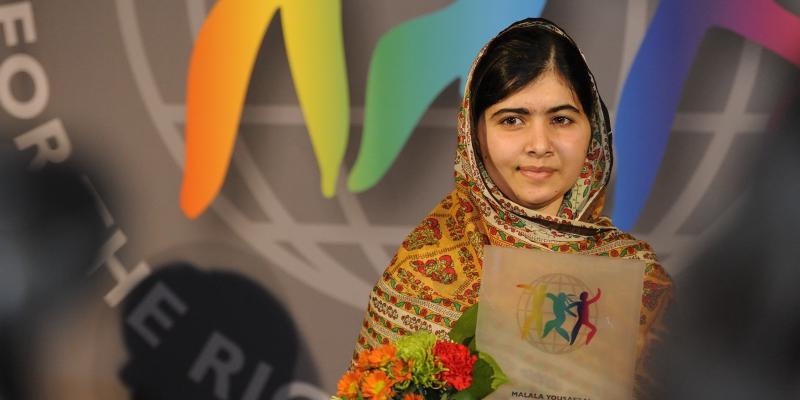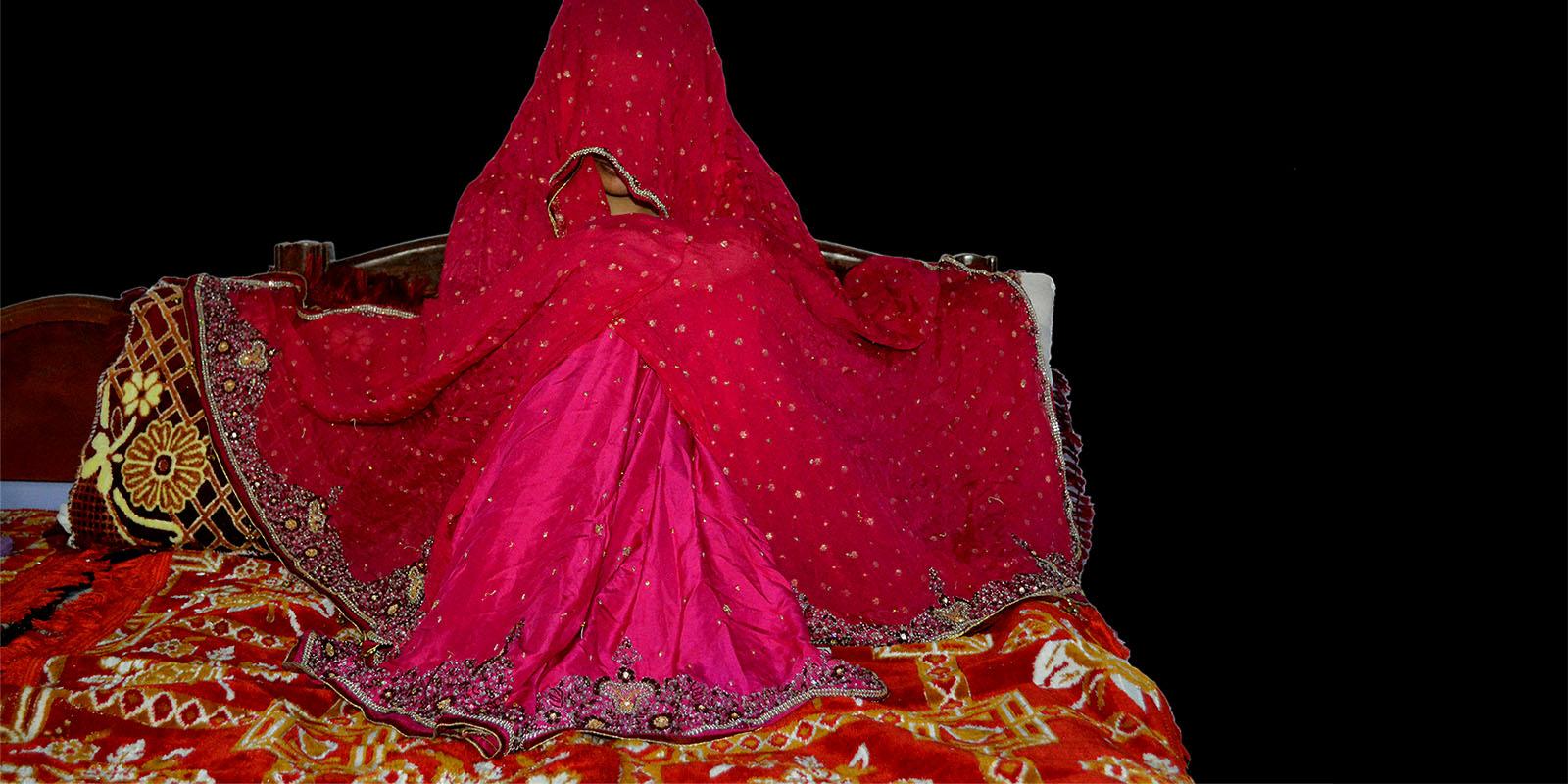
“You’re getting married too, Perveen! It would be ideal for you and Yasmeen to get married at the same time. We have found a man who will suit you. Weddings are expensive, so it would be cheaper if you both got married at the same time.”
Perveen is shocked when her mother says she has to get married at the same time as her big sister.
"I was only eleven. I didn’t want to get married and I hadn’t even met my husband-to-be. I felt confused. Two days before the wedding, an older female relative told me about my responsibility. To live with the man, day and night. I was terrified, and tried to tell my mother that I didn’t want to get married. She just replied, ‘You must obey, all girls get married and it’s your turn now!’”
In despair
“I couldn’t protest. Girls have to be obedient to older family members. Nobody asked me what I wanted.
“My older sister Yasmeen, who was thirteen at the time, knew her husband-to-be. They had talked and they liked each other. She was
happy.
“The wedding preparations went on for days. The girls in our area, our friends and neighbours, sang for us and gave us henna. I was so afraid and I just wanted to run away, but I had nowhere to go. We girls are supposed to look sad when we get married. Otherwise people say that we’re not satisfied with our homes and our parents – all that we leave behind when we get married. Nobody cared that I was distraught, and nobody realised that my tears were for real.”
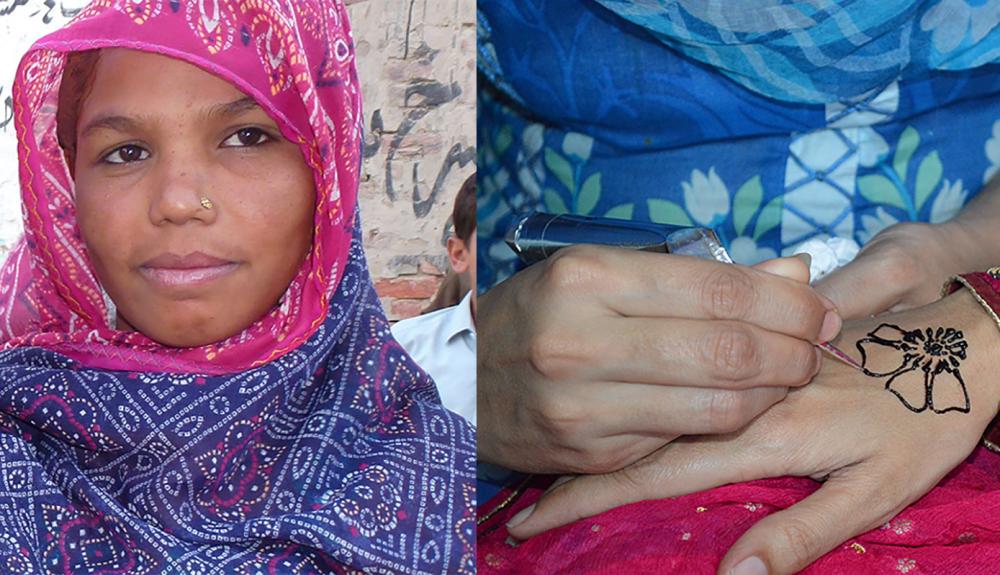
Never good enough
“On our wedding day, we had a bath in the morning and made a traditional desert called kir, made from rice, sugar, milk and almonds. Then we put on our new red clothes and new silver jewellery, which we had received from our parents-in-law. Finally, we put on our new red shoes. Our friends painted beautiful designs on our hands in henna.
“The wedding was in our home, and in the evening our relatives walked with us to our in-laws’ house, which was to be our new home. I was scared and tearful – I just wanted to stay with my
mother.
“Now I had to do housework with my mother-in-law. I felt like I was being watched all the time. I did my best, but my mother-in-law and my husband’s sisters were never satisfied. They complained about me, made faces, and moaned about everything I tried to do.”
"If I had been allowed to go to school, we would have learned more about life, and perhaps our lives would have been different.”
School of life
“After a few months, my parents-in-law suddenly dumped me back at my mother’s house and then moved, with the rest of the family including my husband, to the big city of Karachi. My husband had a drug problem. A year ago, he came back to me. He doesn’t use drugs any more. We both live with my mother now. I still work with my mother in different people’s homes. My husband sometimes works.
“We have never been to school. I used to watch other children walking to school. I wished I could go too, but we had to help our mother to earn money because our father died of tuberculosis. If I had been allowed to go to school, we would have learned more about life, and perhaps our lives would have been different.”
Related stories
Långgatan 13, 647 30, Mariefred, Sweden
Phone: +46-159-129 00 • info@worldschildrensprize.org
© 2020 World’s Children’s Prize Foundation. All rights reserved. WORLD'S CHILDREN'S PRIZE®, the Foundation's logo, WORLD'S CHILDREN'S PRIZE FOR THE RIGHTS OF THE CHILD®, WORLD'S CHILDREN'S PARLIAMENT®, WORLD'S CHILDREN'S OMBUDSMAN®, WORLD'S CHILDREN'S PRESS CONFERENCE® and YOU ME EQUAL RIGHTS are service marks of the Foundation.



